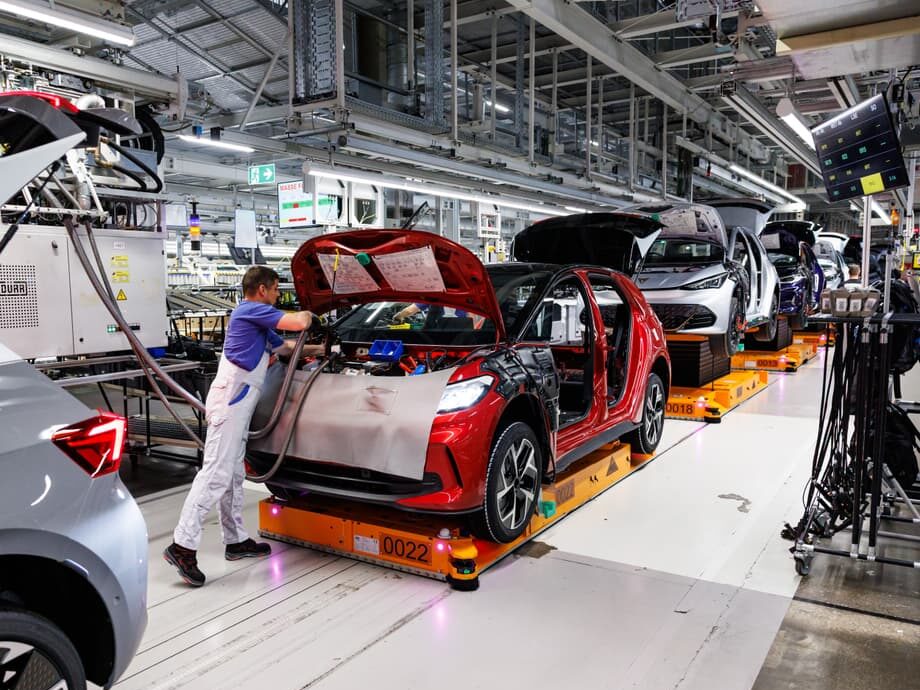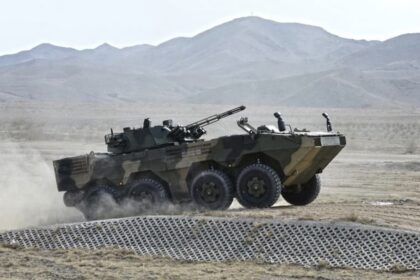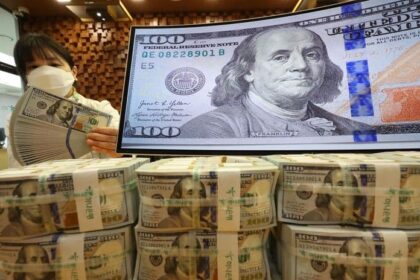Factories on the brink across Europe
Europe’s biggest carmakers are preparing for production pauses within days as a fresh chip supply shock ripples through the industry. The squeeze stems from China’s decision to block exports of components made for Nexperia, a Dutch based semiconductor maker owned by China’s Wingtech. Automakers across the European Union, the United Kingdom and Japan are now working through reserve inventories. Those stocks are thinning fast. Plants that build mass market models and premium cars alike face the prospect of idled shifts if deliveries do not resume soon.
Companies including BMW, Volkswagen, Stellantis and Mercedes are mapping out contingency plans while their suppliers triage orders. The chips at the center of the dispute are not high end processors. They are the small, rugged parts that sit deep inside power electronics and safety systems. Modern cars need thousands of semiconductors for functions as basic as lighting and braking and as advanced as driver assistance and battery management. Without a steady flow of these commodity parts, modules cannot be assembled, and entire lines can come to a stop.
The crunch extends beyond Europe. In Japan, Nissan has said it has enough supply only until the first week of November. Honda has adjusted schedules in North America and paused a plant in Mexico. Suppliers warn that qualifying alternative parts takes time, and building extra capacity takes months. With each day of disruption, the window for avoiding stoppages narrows.
What triggered the chip stoppage
The chain reaction began in late September when the Dutch government invoked a Cold War era statute to take temporary control of Nexperia, citing national security and continuity of supply. It also suspended the company’s Chinese chief executive. Beijing then moved to prohibit Nexperia’s China operations, and their subcontractors, from exporting certain finished components and sub assemblies. The move has choked a crucial part of Nexperia’s logistics. Most of the company’s chips are fabricated in Europe, but roughly seven in ten are packaged and tested in China before being shipped back to customers in Europe and other regions. If that final stage is blocked, the finished parts cannot reach carmakers that need them for vehicle assembly.
Who is Nexperia and why these parts are hard to replace
Nexperia traces its roots to Philips’ semiconductor division and specializes in the building blocks of power and signal control. Its catalog is broad, spanning diodes, transistors, voltage regulators and logic chips that are shipped in very high volumes. These parts are not glamorous, but they are indispensable. Automotive versions must meet strict reliability standards, survive heat and vibration, and function for years. They also need to be qualified for each car model and for each supplier module. Replacing them is not as simple as swapping like for like. Engineers need to validate behavior inside control units, run thermal and stress tests, and clear automotive standards such as AEC and supplier approval processes used by the industry. That cycle can take weeks to months even under favorable conditions.
Industry leaders warn that time is running short. Sigrid de Vries, director general of the European Automobile Manufacturers’ Association (ACEA), said production plans are already being disrupted as part supplies stop and that stoppages could arrive very soon.
ACEA’s Sigrid de Vries said: “Assembly line stoppages might only be days away.”
China’s Wingtech has blamed the shortage on Dutch government actions. Nexperia has told customers it is seeking solutions and has engaged with authorities to secure exemptions, while its China unit has resumed selling to domestic customers. That has not eased pressure on factories in Europe that depend on parts packaged in China.
Automakers scramble to buy time
Automakers and major suppliers are scouring the market to secure short term cover. Mercedes has said it is searching globally for alternative sources and that near term production remains stable, but it warned that politics sit at the root of the crisis and that a political resolution is needed. Volkswagen and BMW are reviewing risks in their supply base that include extensive use of Nexperia components. Bosch is monitoring flows to its plants, while Stellantis is working with Nexperia and other chip vendors to assess impacts and mitigation options. Some suppliers, such as Valeo, say they have identified alternatives for a large share of their volumes, but many of those substitutes still require customer approval before going into series production.
The global footprint of the disruption is widening. Nissan indicated it has chips through the first week of November. Honda suspended production at a plant in Mexico and began schedule adjustments in the United States and Canada. Executives in Brazil have warned that plants there could face stoppages within two to three weeks if shipments do not resume. Some premium electric brands have sourced limited alternatives, pushing any impact further out, but they remain at risk if the dispute drags on.
Manufacturers are weighing triage measures that became familiar during earlier chip shortages. These include prioritizing high margin models, simplifying option packages that rely on specific microcontrollers, and building cars to hold at plant lots until missing modules arrive. Those steps have limits because safety critical systems cannot be shorted, and software changes must pass rigorous checks before deployment.
Diplomacy moves to center stage
Brussels has opened urgent talks with Chinese and Dutch officials to ease the bottleneck and restore cross border flows. European officials say they are seeking a quick resolution that addresses concerns on both sides. A senior Chinese delegation is expected in the European capital for discussions that will also touch on wider trade frictions, including Chinese export controls on rare minerals used in electronics and electric vehicles.
Olof Gill, a spokesperson for the European Commission, said this week that the bloc is in close contact with Beijing and The Hague to calm the situation and keep European industry supplied.
European Commission spokesperson Olof Gill said: “The aim is to find a swift resolution to this problem, which has raised many concerns from European industry.”
China’s commerce ministry has criticized the Dutch intervention and vowed to protect Chinese companies’ rights and interests.
China’s commerce ministry said: “We oppose interference in the internal affairs of enterprises through administrative means and will take necessary measures to safeguard the lawful rights and interests of Chinese enterprises.”
Leaders in Beijing and Washington are also discussing a limited truce that could pause some mineral export restrictions for a period of time. It is not clear whether any arrangement would extend to the European Union. European diplomats worry that the bloc lacks the leverage that comes from a single national voice and that it may have to trade concessions to secure practical relief for its factories.
How a small chip can stop a large factory
The parts caught in the dispute are small and inexpensive. They are also the backbone of every system that moves, senses, regulates or protects a vehicle. A typical car contains more than one thousand semiconductors across dozens of modules. A modern electric car uses far more. When even one commonly used diode or transistor is missing, a supplier cannot complete the module that relies on it. If the anti lock braking module is incomplete, the assembly plant has to hold the car. If the power steering controller cannot be built, the line slows or stops. This is why commodity chips can cause the same headaches as advanced processors when supply dries up.
Substituting a part on paper is easier than doing it in the real world. An alternative component must be validated for electrical behavior, heat dissipation and long term reliability. The unit must be requalified under industry standards such as AEC for parts and PPAP for supplier approval. In safety related applications, the change must align with functional safety requirements under ISO 26262. Each step involves engineering time, test fixtures and new software builds. Even when everyone moves quickly, the process takes weeks for simpler parts and months for complex modules.
Packaging is another bottleneck. Much of the world’s low cost packaging and testing capacity sits in China and Southeast Asia. Nexperia’s flow relies on packaging at Chinese sites for a large share of its output. Redirecting that work to other facilities is not straightforward. It requires compatible assembly lines, available capacity and new tooling. Lead times to bring additional lines online can stretch for months, which clashes with the immediate needs of car plants that operate on tight schedules.
Rare mineral controls add pressure
Chip shortages are hitting at the same time that European companies face tighter controls on minerals. China has introduced measures that require permits for a range of resources, including materials that feed into magnets, batteries and electronic components. Several European firms report that these rules have already forced temporary pauses in production. That backdrop increases the risk that even a negotiated waiver on chip exports would still leave the auto sector exposed to other parts of the supply chain.
European leaders say recent restrictions have strengthened the case for diversifying sources of both chips and raw materials. Plans under the EU Chips Act aim to support more manufacturing and assembly capacity in Europe. Projects in packaging and testing are also gaining attention, since bottlenecks increasingly occur after wafer fabrication. These are medium term responses. They do not create the thousands of parts that car factories need to keep moving this week.
What it means for production schedules
Analysts warn that even a short disruption can leave a mark. One bank estimates that Germany’s output could fall by about 10 percent if the stoppage lasts, with a more severe case pointing to a larger hit. Specific outcomes depend on where bottlenecks occur. A single missing part can idle a popular model, while other lines stay open if their suppliers have enough. Many carmakers are building contingency plans that include shortened shifts, temporary furloughs and focused runs on vehicles with the simplest electronics packages. The goal is to stretch remaining stocks and keep assembly teams working.
A rapid political fix would change the picture quickly. A narrow exemption that allows Nexperia’s China operations to ship existing orders back to Europe could prevent stoppages. A pathway to redirect packaging to non Chinese sites would also help, although that requires time and capacity. Dutch officials have said they want to restore a stable corporate structure at Nexperia and resolve export issues. Chinese authorities, meanwhile, signal that they expect foreign governments to pull back administrative controls. Those positions set the stage for a difficult negotiation.
Communities around plants are watching closely. Many factories shifted to flexible scheduling during earlier shortages and are prepared to do so again, but prolonged interruptions would ripple through local suppliers and logistics providers. Managers are trying to avoid abrupt shutdowns that would make it harder to restart. The buffer that now exists in supplier warehouses and factory stockrooms will decide how many days are left before the first lines pause.
At a Glance
- European carmakers warn they are days away from production pauses as China blocks exports of Nexperia chips packaged in China.
- Automakers and suppliers are working through reserve stocks that are rapidly dwindling, with calls for a diplomatic solution.
- Nexperia fabricates many chips in Europe, but around 70 percent are packaged and tested in China, which is now restricted from exporting to Europe.
- ACEA cautions that assembly line stoppages could be imminent, while EU officials engage Chinese and Dutch counterparts to ease the bottleneck.
- China’s commerce ministry opposes the Dutch intervention and says it will protect the rights of Chinese enterprises.
- Nissan says it has supply through the first week of November, Honda has adjusted output in North America and paused a plant in Mexico.
- Even basic diodes and transistors require qualification and supplier approval, so switching parts can take weeks to months.
- China’s controls on rare minerals add strain to European supply chains for electronics and electric vehicles.
- Analysts estimate a potential 10 percent drop in German output if the stoppage endures, with a worse scenario pointing to deeper cuts.
- A limited exemption for shipments from China or rerouting packaging to other sites could avert the worst, but time is short.












